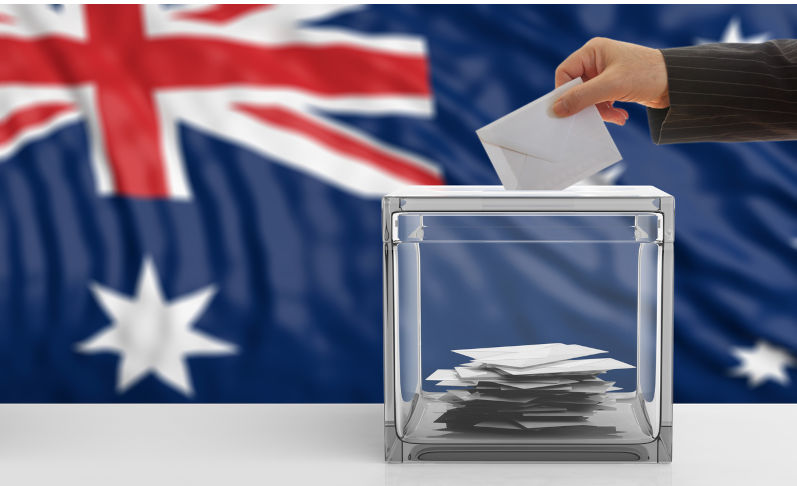There are signs that voters are turning towards Albanese and Labor and away from Dutton and the Coalition.
Even Michelle Grattan, renowned for her “on-the-one-hand-on-the-other-hand” reporting hints that Dutton is facing some headwinds. In her Conversation article Do voters fear PM Peter Dutton would be a surprise packet? she writes:
His team remains weak. Mr Taylor still can’t stack up effectively against Treasurer Jim Chalmers. This is a potential vulnerability in the election campaign.
Will Dutton get away with his small target strategy, or will he have to reveal policies that may not be attractive to the electorate?
Paul Sakkal, writing in the Sydney Morning Herald, writes that Andrew Carswell, Scott Morrison’s former media adviser, has warned Dutton that Albanese is gaining momentum.
The idea that Labor has been a long way behind in the polls, or even in a death spiral, has never had much credibility; it seems to have been a right-wing beat-up. Both Labor’s primary support and its TPP support fell after its post-election high, but by neither measure has Labor’s support been significantly lower than its support at the 2022 election.
William Bowe’s BludgerTrack shows that the Coalition’s TPP support caught up with Labor’s around September last year, and has stayed about 1% ahead.
As reported in these round-ups, which also draw data from Bowe’s Poll Bludger site, since September 2024 Labor’s primary vote has been about 2% to 3% lower than its vote in the 2022 election, while the Coalition has been ahead by a similar margin. But in the last few weeks Labor’s fortunes seem to have started to change. That margin is now more like 1%, as shown in the table below, and it is possible that some of Labor’s loss has been to the Greens rather than to the Coalition.

Polls are also showing significant movement in people’s approval ratings of Albanese and Dutton. According to the Essential Report, for the first time since October 2023 Albanese has achieved a positive net approval rating (i.e. percentage approve minus percentage disapprove) – of minus 1%. Dutton’s net approval has slowly moved from a high point of plus 6% last October, to minus 5% in the most recent poll.
Those are the poll results. Political commentators are finding it difficult to understand Dutton. The ABC’s Brett Worthington describes Dutton’s recent moves in his post Peter Dutton made a pre-election cost-of-living edict, only to find himself repeatedly breaking it. Rather than putting forward economic policies that could address households’ economic concerns, he has been making ridiculous proposals and backing away from them. Are these clever ways of distracting media attention away from the government? Are they about a Queensland cop’s obsession with locking up criminals (an obsession described in Lech Blaine’s Quarterly Essay Bad Cop.)? Or are they simply manifestations of someone who cannot get a grasp on public policy?
People may find it hard to understand Dutton’s policies, but at least he is well-known. Annabel Crabb reports that surveys by Redbridge reveal that a quarter of voters say they have never heard of Greens leader Adam Bandt, and that non-recognition is strongest among people who intend to vote Green, particularly young people. According to Crabb, it’s about “brand recognition”. An explanation more respecting of younger voters is that they’re attracted to green policies.
That same survey found that young voters are disengaged from politics, and that the little political news they are getting is through social media rather than through traditional media.
Simon Holmes à Court on community independents
“The problem with our politics is that parties are more interested in winning elections than in advancing our nation, how they seek power without purpose, how the party machines have proved themselves incapable of addressing big challenges that we face, and how they have tilted the playing field in their favour, wielding their enormous power and the advantages of incumbency to box out small challengers.”
So began Simon Holmes à Court’s address to the National Press Club last week.
He gives his insights on the Australia political landscape, and how it has been changing as voters turn away from established parties. He explains how community independents develop standing in their electorates. He describes the relationship between Climate 200 and the independents, stressing that independents draw their authority from the community, not from Climate 200. He goes into some of the electoral arithmetic of independents’ campaigns. And he describes, in detail, the financial advantages major parties have provided themselves.
After his 30-minute address, there’s a Q&A session. Some questions are based on unchecked fake facts. Some are based on false representations of Climate 200 and of independents. Most are from journalists, conditioned by the idea that politics is a two-party contest, who find it difficult to understand how Australian politics has changed.
Climate 200 is supporting 35 candidates in the coming election. You can find out more from their website, and, of course, make a donation. (Remember that through public funding of campaigns, you have already donated to the Labor, Liberal, National and Green parties.)
One more time – there is nothing to fear about minority government
Of course, ABC journalists don’t engage in partisan comment. The broadcaster’s obsession has been with “balance”, ensuring that journalists don’t do anything that might be seen to favour one side or the other, as if politics is a struggle between two similar football teams. But it’s harder to apply those rules to other political players, particularly the large and growing number of independents in Parliament. Journalists seem to have been enjoying a certain freedom to comment on independents. For example, Sabra Lane’s post Labor and the Coalition are demonising a hung parliament but they’ll only have themselves to blame if it happens is most positive about the influence of independents on our Parliament.
Journalists must find their jobs frustrating when their interviews with Labor or Opposition politicians bring forth the gobbledygook of “talking points” prepared by party apparatchiks, or in the case of politicians such as James Paterson, an unbroken stream of prose delivered like rookie actors who have learned their lines off pat without understanding what they’re talking about. It must be refreshing to interview an independent who speaks for her electorate and who thinks for herself.
Lane points out that independents, who keep in touch with their electorates, almost often get re-elected. William Bowe’s Poll Bludger, however, reports on a Freshwater poll, conducted for News Corporation, suggesting that the Liberals have improved their support to the extent that four independents (Sophie Scamps, Mackellar; Zoe Daniel, Goldstein; Monique Ryan, Kooyong; Kate Chaney, Curtin) will most likely be defeated. This should be treated with some scepticism: Freshwater always seems to show much higher Coalition support than is revealed in other polls.
A less constrained case for minority government is in a Conversation contribution by Shamit Saggar of Curtin University: Australia’s next government may well be in minority. Here’s how that can be a good outcome for the country.
Judith Brett on our political institutions
On 6 November last year Australians woke up to the news that Americans, people we have tended to think of as fairly similar to us, had just voted in as president an authoritarian populist. Many Australians are wondering if this could happen here, particularly as we see that Dutton and his cronies, having shifted the once-centrist Liberal Party to the authoritarian right, have been adopting many of Trump’s political strategies and even some of his policy lines.

Some Australians suggest we are protected by compulsory voting, which brings the “moderate middle” out to vote, and encourages parties to focus on policy issues rather than attempting to motivate the party faithful to turn out. The turnout for America’s election last year was 64%. That’s high by US standards, but it substantiates the claim that Trump’s mandate is based on the support of only 32% of Americans eligible to vote.
Compulsory voting is not the only, or most important, way in which we differ from America. Quite apart from the fact that we vote for our Parliamentary representatives, rather than for our head of government (prime minister/president), our electoral system is very different from America’s. Perhaps the most important difference is our use of preferential voting.
In fact, as Brett points out in her 2019 book From secret ballot to democracy sausage: how Australia got compulsory voting, Australia has been at the leading edge of voting reform. The secret ballot was such a radical reform in the 19th century that worldwide it became known as the “Australian ballot”. We were at the forefront of female suffrage. Compulsory voting is supported by compulsory registration, which protects against voter suppression measures. And we have independent electoral commissions federally and in our states.
But how embedded are these reforms? Have they arisen from convenient deals between political interests, or have our democratic institutions been shaped by our culture and our history?
This is the issue in Joe Walker’s podcast How a Benthamite political culture shaped Australia’s electoral system – a long discussion with Brett. As the title suggests, public ideas, such as Bentham’s utilitarianism, were influential in shaping our Constitution and the many electoral reforms that followed by legislation.
Brett points out that our constitution-building is different from America’s. They were forging a political system from scratch, drawing on ideas of Lockean liberalism. Australia, more than 100 years later, built on the already-established British system. Those who drafted our Constitution and our electoral laws were reformers out to improve a system, rather than visionaries out to shape a new system. They were influenced not only by utilitarianism (which assigns a strong role to state capacity), but also by the chartist movement concerned with workers’ rights and other practical reforms. Both the US and Australian systems are liberal, but America’s is closer to the libertarian end of the spectrum.
That is not to suggest our voting systems are built only on public ideas. US and Australian colonial experiences were very different. In Australia, old class systems based on income and wealth were upset by the success of a number of convicts who prospered, and they were upset once again by the gold rush. Both had consequences that required adaptation of our political system. Racism, too, played a significant part, in the form of the White Australia policy and discrimination against Indigenous Australians. Brett describes how explicit racism and convenient rationalisations around racism effectively reversed pre-federation gains for Indigenous Australians, which weren’t restored until 1962.
It is possible that Trump’s success has prompted us to take more interest in our political institutions and to understand the difference between the US and Australian histories and cultures. We are so plainly different from the UK — a comparison Australians often make — but as two New World settler societies, superficial similarities between the US and Australia tend to gloss over some quite basic differences.
The Walker-Brett interview is long – 85 minutes, including 30 minutes of Q&A. The first 20 minutes are about the basic public ideas and the rest is more about specific reforms. There is also a transcript on the site.
Republished from Ian McAuley.com March 2025
Ian McAuley is a retired lecturer in public finance at the University of Canberra. He can be contacted at “ian” at the domain “ianmcauley.com” .

